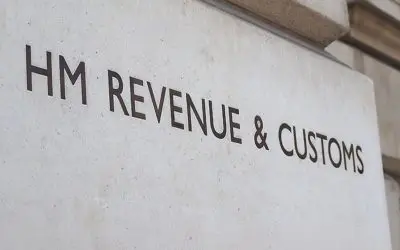Tax Disputes and Investigations – December 2023

Our regular newsletter highlighting recent developments in the law and practice around Tax Disputes and Investigations.
Pandora Papers
HMRC have confirmed that they will be issuing further letters to taxpayers who they believe may have undeclared tax liabilities based on information obtained via the Pandora Papers. The letters will be issued over the next few weeks. The Pandora Papers refers to a data leak involving 14 offshore service providers which was shared with the International Consortium of Investigative Journalists. Data obtained by HMRC from this leak has already led to a significant number of investigations being launched.
The letters provide an extended response time of 60 days (probably because of the proximity to Christmas). Any client in receipt of such a letter will need to consider their position extremely carefully. Consideration will in particular need to be given to whether a disclosure to HMRC is required, and potentially whether an approach should be made to make a disclosure under Code of Practice 9. Additionally, it will be necessary to consider the risk of whether penalties under the Requirement to Correct penalty regime might apply.
Landlord Schemes
We are continuing to see a lot of activity involving participants in schemes promoted by Property 118 and Less Tax 4 Landlords, which were the subject of HMRC’s recent Spotlight 63. Broadly, our view is that these schemes are unlikely to achieve the advertised tax outcomes and engagement with HMRC is likely to be necessary in almost all instances. This is in line with what HMRC has so far published in relation to this topic. Having now reviewed a number of cases in detail we have a settled strategy and have commenced engagement with HMRC in order to seek resolution of the various tax issues identified. Any clients who have implemented this or similar planning are likely to be subject to HMRC scrutiny in due course and therefore an early assessment of the risks and engagement with HMRC is likely to be beneficial.
Electronic Sales Suppression
HMRC have recently carried out unannounced visits to a number of take-aways and restaurants in connection with Electronic Sales Suppression (‘ESS’). Earlier this year, HMRC announced that businesses which had used electronic methods of sales suppression should make a disclosure of any under-reported tax as soon as possible (see our December 2022 update). It appears that HMRC have now begun to take action on the basis of information which they hold about the use of ESS software. This news emphasises that it is critical for businesses which have used ESS Software to make a full disclosure of any irregularities to HMRC as soon as possible.
Cryptoassets
HMRC launched a new campaign to encourage disclosures of tax liabilities connected to cryptoassets at the end of November. This has been accompanied by a new online disclosure facility which went live earlier this month.
HMRC revealed last year that its research indicated that 1 in 10 UK adults held cryptoassets, concentrated especially within younger age brackets. Most of these individuals had holdings of less than £5,000 and may not otherwise have had any obligation to file a tax return. In addition, the tax treatment of cryptoassets can be complex, with HMRC generally taking the view that the profit or loss made on the buying and selling of cryptoassets is within the charge to Capital Gains Tax (CGT). It’s therefore no surprise that HMRC suspects a considerable degree of accidental and unwitting under-reporting of taxable activity in this area.
HMRC will soon start to receive automatic information about individuals’ trading activities from crypto platforms via automatic exchange of tax-relevant information across international borders. In other areas of offshore financial activities where this has been the case, a significant programme of ‘nudge’ letters and enquiries has swiftly followed. The government is also exploring options for recovery of unpaid tax by giving HMRC powers to recover monies directly from digital wallets.
Anyone holding cryptoassets who is concerned about these developments should seek an initial review of their position and advice on any action required to ensure that they limit their exposure to the penalties which are likely to apply if they receive a ‘nudge’ letter in advance of making a disclosure.
Company R&D Reliefs
This continues to be a highly active area for HMRC enquiries into companies of all sizes and across the whole breadth of business and industry. We have continued to work successfully with our clients and HMRC to resolve these checks in an efficient and timely manner. However, we are aware that this is not the typical experience across the piece, where clients, their accountants and / or R&D tax experts may be struggling to engage productively with HMRC. These issues have led to concerns being raised with the government, including via the CIOT, that HMRC’s approach is having a negative effect on confidence in the UK as a destination for investment.
We do sympathise with these representations. These enquiries can be intrusive, time consuming and disruptive to a business. However, we continue to believe, and to see in practice, that where engagement with HMRC is structured and handled in the right way such difficulties can be overcome.
Autumn Statement – Additional Funding for HMRC’s Debt Management Function
HMRC is to be given £163m in funding to assist them in dealing with tax debtors. The Chancellor announced in his Autumn Statement that the aim is to allow HMRC to “better distinguish between those who can afford to settle their tax debts, but choose not to, from those who are temporarily unable to pay and need support.”
In the same way that HMRC has recently announced plans to drive up the quality of their COP9 process, our view is that this drive to distinguish between those who can afford to pay and those who don’t want to, could see HMRC applying much more scrutiny of Time to Pay proposals put forward and requiring further evidence around assets and liabilities.
This targeted investment by HMRC makes sense to us given our recent experience of agreeing Time to Pay arrangements. The process of successfully reaching agreement can be involved and complex and would greatly benefit from being made more efficient. The forecast is that this additional funding will enable HMRC to recover an extra £515m in 2024/25 and bring in over £1bn from 2025/26.
Case Law Update
Some notable recent cases which will be of interest for those dealing with tax disputes or investigations are as follows –
Parker Hannifin (GN) Ltd TC 2021/10906 involved an appeal against an information notice issued under Schedule 36 Finance Act 2008. The notice required the production of emails falling within specific named categories. The company’s professional advisers carried out a very extensive search based on the categories identified but limited the documents actually provided to those which were relevant to the tax liabilities under enquiry. HMRC asserted that, in order to comply with the notice, all of the documents described would need to be provided. The company appealed on a variety of grounds, the most important of which was that most of the documents described in the notice (and subsequently not disclosed to HMRC) were not ‘reasonably required’ for the purposes of checking the company’s tax position. The search terms resulted in numerous irrelevant documents being within the category requested. By way of example, the terms included the word ‘avoidance’ and therefore any email including the phrase ‘for the avoidance of doubt’ would have fallen within the categories to be disclosed to HMRC. A total of almost 10,000 documents were identified as irrelevant. The tribunal held that the notice should be varied so that the irrelevant documents identified by the professional advisers should not be required to be disclosed.
The case is helpful in the context of dealing with broad-ranging HMRC information requests as it described several limitations on HMRC’s ability to require the production of irrelevant documents. In particular, HMRC were required to accept that recipients of a notice can self-certify that all of the information requested has been provided in appropriate circumstances (and subject to confirmation that the review exercise has been carried out diligently). The case illustrates the need to ensure that any HMRC request for information or documents is carefully considered and that detailed and objective justification will be necessary if the request is to be resisted.
Collier and others v HMRC [2023] UKFTT 00993 was a case involving assessments made on the basis of deliberate behaviour. The taxpayer argued that he had placed reliance on his then-adviser to complete the relevant returns and was not aware that there had been any under-declarations. Despite there having been significant (in real terms) under-declarations, the tribunal held that in the specific circumstances (which included the relationship with his adviser and the taxpayer’s dyslexia amongst other things), there had been no deliberate conduct. HMRC’s position, as is common in cases of this nature, was essentially that because the under-declarations were large, the taxpayer must or ought to have known that their return was incorrect. The tribunal gave detailed consideration to HMRC’s assertion that the taxpayer’s conduct was sufficiently reckless as to constitute deliberate behaviour. The tribunal considered the basis on which a taxpayer could be found to have deliberately understated liability without specific knowledge of an inaccuracy. The test to be applied was whether there was ‘blind-eye knowledge’ which the tribunal defined as circumstances where a taxpayer has good reason to suspect that a return contains an inaccuracy but fails to take steps to check. The tribunal’s view was that ‘blind-eye knowledge’ required a firmly grounded suspicion of an inaccuracy in a return, which was not present. Recklessness as to whether there was an inaccuracy was not sufficient.
It appears to us that HMRC were encouraged to take the view that there had been deliberate conduct simply because their enquiry was conducted under Code of Practice 9. It is our experience that where HMRC have issued Code of Practice 9, it is often much more difficult to persuade them that a loss of tax has not been brought about deliberately than in other contexts. However, the decision in Collier demonstrates that, even where understatements are very large, it is still necessary to consider the circumstances in detail to determine the nature of the conduct which leads to a tax loss. Additionally, the case provides some helpful analysis around the distinction between deliberate and reckless conduct.
Finally, a decision of the First Tier Tribunal in Gopaul v HMRC [2023] UKFTT 00728 included some interesting commentary about the application of the provisions of s455 CTA 2010 in the context of extractions from close companies. An HMRC enquiry into a company owned by Mr Gopaul concluded that there had been under-declaration of sales. As is typical in an HMRC investigation of that nature, HMRC asserted that additional VAT, Corporation Tax, and tax under s455 CTA 2010 was due. HMRC’s view is that where undeclared takings have not been accounted for and have been received by a shareholder in a close company, a liability under s455 CTA 2010 arises on the basis that there has been a loan to a participator. The tribunal held that it was necessary to determine whether there had been a deliberate understatement of the each of the heads of liability and that because Mr Gopaul was completely unaware that liability under s455 CTA 2010 could arise, there could not have been a deliberate understatement of that liability. In our view, there would be good grounds for the decision to be overturned on appeal because the tribunal’s approach is at odds with the generally understood approach. However, in the meantime the decision provides a useful basis for discussion around similar issues with HMRC.
Tax Disputes and Investigations – November 2024
The Autumn Budget contained several high-profile measures which have obviously been the subject of considerable debate since. In this month’s newsletter, we have looked at some of the immediate announcements which may be specifically relevant for those dealing...
Tax Disputes and Investigations -October 2024
Alternative Dispute Resolution (‘ADR’) By Jon Preshaw ADR is an increasingly important part of the toolkit available to practitioners and HMRC to resolve disputes. Our recent experience is that HMRC are keen to engage through ADR in most circumstances. In...
Tax Disputes and Investigations – June and July 2024
Our regular newsletter highlighting recent developments in the law and practice around Tax Disputes and Investigations. HMRC’s Annual Report HMRC’s Annual Report, published at the end of July, includes lots of detail about the department’s performance in the 2022/23...



